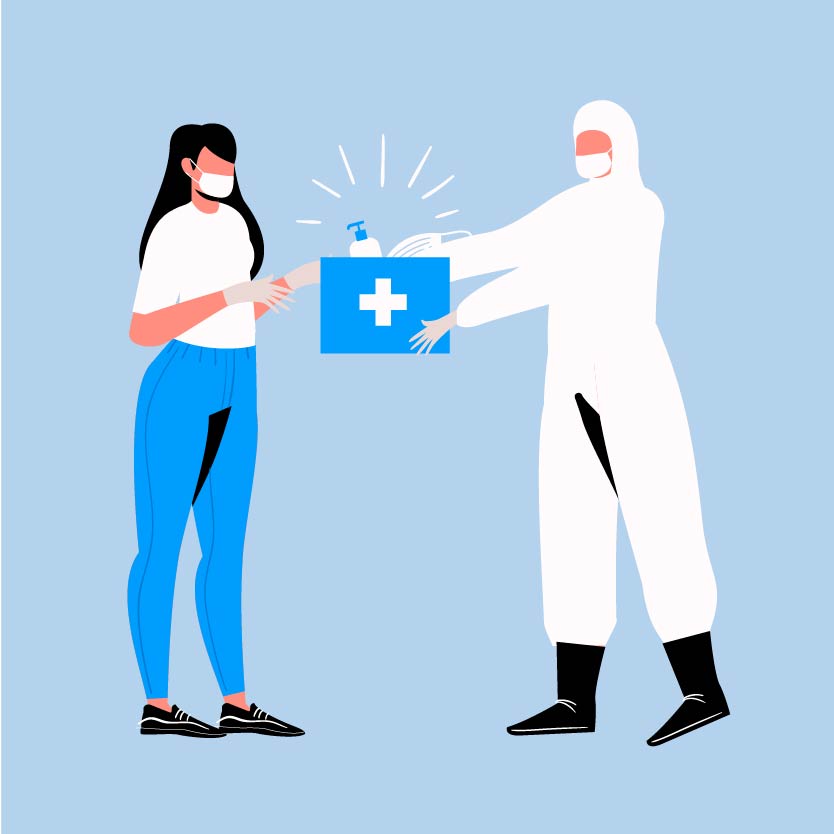We cannot argue that in this day and age, we are all more exposed to the Internet. Almost all of the gadgets and gizmos we use nowadays come with the boons of access to the Internet. So, this can’t be our all fault. We are bound to be online to a considerably great extent. The vexed question when assessing the degree of online addiction is that it heavily depends on the individual’s cultural background. Online addiction is indeed and indisputably an actual problem, but some societies perceive it as a superficial addiction. Online addiction is culturally biased and although it may vary from culture to culture, online addiction is nevertheless a growing issue among youngsters in this modern era and to be more precise, it is a form of disorder which people treat rather lightly.
Now, that sounds a little bit intimidating, doesn’t it? Mild addictions are not usually classified as a disorder. But too much of an addiction which predominantly spawns a bunch of negative effects can be regarded as an impulse control disorder to a significant extent. But that does not mean online addiction is necessarily a negative addiction. Nonetheless, it is rarely considered as a positive addiction since the costs outweigh the benefits. Online addiction is bad! Mostly at least. A lot of people do not even regard the heavy use of the Internet as dangerous. Knowing your limit is essential in order for you to always maintain a psychological distance between online addiction and yourself. When you overstep this limit—you can guess what’s about to come next—you might stumble upon the banana skins of the privileges of the Internet. The consequences of becoming an online addict are substantially fraught with precarious risks concerning both your physique and your psyche. That being the case, it is important that you keep a check on your proclivity to spend an unreasonable proportion of your free time online. In order to do this, identify which category of online addict you fall under foremost. This may include adrenaline junkies, social bugs, cybersex addicts, gambling, gaming, dating addicts and suchlike. Here are some hints that may indicate you are an online addict.
1. You Spend A Preposterous Amount Of Time On The Internet, Physically Alone
%20-%201.%20Online%20Alone%20small.jpg)
“Here I am in my own world. Don’t talk to me cause I wont respond.”
Some people, particularly students, are required to employ a huge fraction of their time online due to schoolwork and whatnot. Apart from that, do you spend an awful lot of time on the Internet, doing nothing particularly productive? And do you go online at every chance that you get? The time frame of the Internet usage depends on the individual. Gamers, to give an instance, tend to spend a huge amount of their time online. This may not be the case for others. It is not to say that gamers are per se addicted to the Internet. They might be addicted to games. But the Internet may serve as the means for them to get access to video games, especially when they want to play them with gamers from all around the world. Same goes for cybersex addicts as well. They are not addicted to the Internet, but they use the Internet to access pornography.
Keep track of your screen time. Keeping a tab on your academic performance can also indicate if the quality of your studies is declining due to an excessive use of the Internet.
2. You Exhibit Physical Symptoms Of An Online Addict
%20-%202.%20Physical%20Symptoms%20small.jpg)
“I need my dose of being online…”
This can be an efficacious way to know if you are an online addict if you could not quite put your finger on it by evaluating your emotional symptoms. Generally, you would manifest fatigue ranging from mild to extreme exhaustion. These are some of the other physical symptoms of an online addict:
- Sleep deprivation and irregular sleeping patterns
- Dry, tired eyes
- A noticeable gain or loss in weight
- Serials of tension-type headaches
- Neck aches and back pains
- Unhealthy eating habits
- Strained vision from too much screen time
- Carpal tunnel syndrome
If you have been evincing at least three of these symptoms, you might want to recheck your online habits.
3. You Exhibit Emotional Symptoms Of An Online Addict
%20-%203.%20Emotional%20Symptoms%20small.jpg)
“Do not disturb me, I’m emotionally affected by my need to be online.”
These symptoms can be a little difficult to notice or in fact to be shouldered. Many of us would most likely disagree and confute with ourselves when evaluating these symptoms. Of course, no one likes to be branded a weirdo just because they spend so much time on the Internet playing Candy Crush. But these symptoms may be a word of warning, hinting that you’ve gone too far.
- You are only happy when you are online. You like virtual people more than real-life people. You might have feelings of frustration and agitation when you are unable to go online. That said, you may also suffer from feelings of restlessness when you try to cut down on the use of the Internet.
- Feelings of guilt.
- Isolating yourself from the rest of the world and creating your own virtual world.
- Disorganized schedules and heavy procrastination.
- Can’t keep track of time.
- You are defensive when someone confronts you on your online habits.
- Worst-case scenario, you are suffering from depression when you are not facing a computer or your phone screen.
4. You Sit On A Throne Of Lies
%20-%204.%20Lies%20small.jpg)
“I’ve just been online for half an hour today, I swear.”
Lies to your family members, friends, teachers, therapists and even yourself. We’ve all been asked this question, “What you’re doing online for such a long period of time,” and we’ve all lied straight to their faces. That is a harmless white lie, one might argue. What they don’t know won’t hurt them, right? But have you gone to the extent where you repeatedly lie to others about your online habits in order to conceal your unhealthy addiction? You might also get unnecessarily angry when people inquire you of your online activities. Dishonesty is your only way to keep others from poking their noses into your involvement with the Internet.
5. Maintaining Physical Relationship With Others Is Unimportant
%20-%205.%20Isolation%20small.png)
“I don’t need friends, I prefer to be alone with internet as company.”
This is the part where we can establish that you are not only an online addict, but you are also manifesting antisocial behaviours. You do not happen to mind deterioration of important relationships and you would even risk losing real-life friends, only to gain more online friends. You might be more interested in conversations with your rotating clique of online friends rather than talking to your real-life friends. There is a striking correlation between the amount of time spent with your family and friends and the maintenance of your relationship with them. The more the time you spend with them, the healthier your relationship with them is. By allocating too much of your time online, you are driving your family members and friends away.
6. Are You On Stage Of Denial
%20-%206.%20Denial%20small.jpg)
“See nothing, hear nothing. Internet addiction is good.”
As mentioned in the fourth hint, you try to reason the degree of your involvement online with unreasonable justification by downplaying or totally ignoring the negative impacts of your intemperate Internet usage. This means you often convince yourself that you are not an online addict. You tend to overlook all the signs that pinpoint your unhealthy addiction and you only focus on the benefits. This is also sometimes referred to as confirmation bias. Do re-evaluate your perception of an online addict. When in doubt, seek external help.
7. The Internet Calls To You
%20-%207.%20Internet%20Calling%20small.jpg)
“Come to me… You need me.”
If you have tried to reduce the amount of time you spend online and inevitably failed time and again, I think the universe is trying to tell you something. No matter how hard you try to stay away from the Internet, you find yourself being drawn back to it in no time. You might undergo twinges of visceral yearning to go online even when you are not supposed to. You would rather sacrifice sleep to spend a little more time on the Internet. This sort of longing is involuntary and often you cannot help it.
8. Being Online Is Your Only Solution To Escape Dysphoric Moods
%20-%208.%20Escape%20Online%20small.jpg)
“There the light at the end of the tunnel.”
Dysphoric moods include anxiety, depression, hopelessness and agitation. We live in a world where the ice-cream truck does not excite a kid anymore. The iPad does. The last few years had seen a rapid development in electronics and perhaps this is the reason why people these days perceive electronic devices as a tool to relief stress and escape from their problems. This is not true. There are many other ways—healthy ways—to relief stress. But if you are convinced that your dysphoric moods can only be eased by the Internet, then you do have a problem with online addiction.
These are some of the many symptoms that can hint you are an online addict. Students often justify their Internet addiction as a preferable choice compared to other self-destructive leisure activities, such as drinking alcohol, petting tigers and bungee jumping. This is true to some extent. But a little too much of anything can’t be good. Unless if it’s George Clooney of course—we can never have enough of him. Due to the innumerable amount of benefits the Internet blesses us with, online addiction is often treated as a joke. It should not be. It is a real problem for many people and they usually neglect their physical and mental health. A careful and indispensable balance between your online and offline lives is the key to a healthy lifestyle. Once you have noticed that you have an addiction problem, do not just turn a blind eye to it. Most online addicts are well aware of their unwholesome behaviours as a direct result of their Internet obsession and yet, they might not choose to do anything about it, mostly because they don’t know how to take it seriously. To them, the Internet is just a vehicle to avert their attention from their problems.
%20-%209.%20Break%20Free%20small.jpg)
“I need to break free!”
Don’t run away or hide your problems behind the interface of the Internet. Instead, find healthier ways to overcome them. I can keep going with the preaching, but as a student myself, I understand that it is always easier said than done. This online addiction comes with our generation and it is highly possible that in a matter of years, online addiction might be an acceptable norm in our society. It might just become a part of our culture. Nevertheless, online addiction has its risky consequences. It is always advisable to stay on the safe side, just in case.
Do you think you can write something exciting and thought catching? Do you have an idea in mind that would make a great article? Why wait! Shy? Afraid you’re not good enough? Not in our dictionary! Sign up with us! Fill up the ENQUIRY form now or look to your right and drop us your idea in General Enquiry! You could very well be on your way to getting tons of views and to being the next top notch writer!








